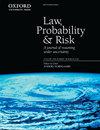Buy Coal, Cap Gas! Markets for Fossil Fuel Deposits When Fuel Emission Intensities Differ
IF 1.4
4区 社会学
Q1 LAW
引用次数: 0
Abstract
Climate policies can target either the demand or the supply of fossil fuels. While demand-side policies have been analyzed in the literature and applied in policy-making, supply-side policies, e.g. deposit policies, are a promising option and a recent research focus. In this paper we study deposit markets for two fuels that differ in emission intensity. We find that, with strategic action on the deposit markets, deposit policies are inefficient due to price manipulations within and between both deposit markets. Regarding the political economy of deposit policies, they generate more welfare for all countries if applied to both fuels as opposed to one or none. Further, for perfectly segmented fuel markets, importing countries do not purchase deposits of a sufficiently clean fuel. If fuels are substitutes and strongly differ in emission intensity, countries do not buy deposits of a relatively clean fuel. Finally, deposit markets can induce countries selling deposits to choose a cleaner fuel mix.购买煤炭,限制天然气!燃料排放强度不同时的化石燃料储备市场
气候政策既可以针对化石燃料的需求,也可以针对其供应。虽然需求侧政策已经在文献中进行了分析并应用于政策制定,但供给侧政策,例如存款政策,是一个有希望的选择,也是最近的研究重点。本文研究了两种不同排放强度燃料的存款市场。我们发现,在对存款市场采取战略行动的情况下,由于两个存款市场内部和之间的价格操纵,存款政策效率低下。关于存款政策的政治经济学,如果适用于两种燃料,而不是一种或一种燃料都不适用,它们会给所有国家带来更多的福利。此外,对于完全分割的燃料市场,进口国不会购买足够清洁的燃料储备。如果燃料是替代品,而且排放强度差别很大,各国就不会购买相对清洁的燃料。最后,存款市场可以促使出售存款的国家选择更清洁的燃料组合。
本文章由计算机程序翻译,如有差异,请以英文原文为准。
求助全文
约1分钟内获得全文
求助全文
来源期刊

Law Probability & Risk
MATHEMATICSSTATISTICS & PROBABILITY&-STATISTICS & PROBABILITY
CiteScore
2.10
自引率
28.60%
发文量
8
期刊介绍:
Law, Probability & Risk is a fully refereed journal which publishes papers dealing with topics on the interface of law and probabilistic reasoning. These are interpreted broadly to include aspects relevant to the interpretation of scientific evidence, the assessment of uncertainty and the assessment of risk. The readership includes academic lawyers, mathematicians, statisticians and social scientists with interests in quantitative reasoning.
The primary objective of the journal is to cover issues in law, which have a scientific element, with an emphasis on statistical and probabilistic issues and the assessment of risk.
Examples of topics which may be covered include communications law, computers and the law, environmental law, law and medicine, regulatory law for science and technology, identification problems (such as DNA but including other materials), sampling issues (drugs, computer pornography, fraud), offender profiling, credit scoring, risk assessment, the role of statistics and probability in drafting legislation, the assessment of competing theories of evidence (possibly with a view to forming an optimal combination of them). In addition, a whole new area is emerging in the application of computers to medicine and other safety-critical areas. New legislation is required to define the responsibility of computer experts who develop software for tackling these safety-critical problems.
 求助内容:
求助内容: 应助结果提醒方式:
应助结果提醒方式:


